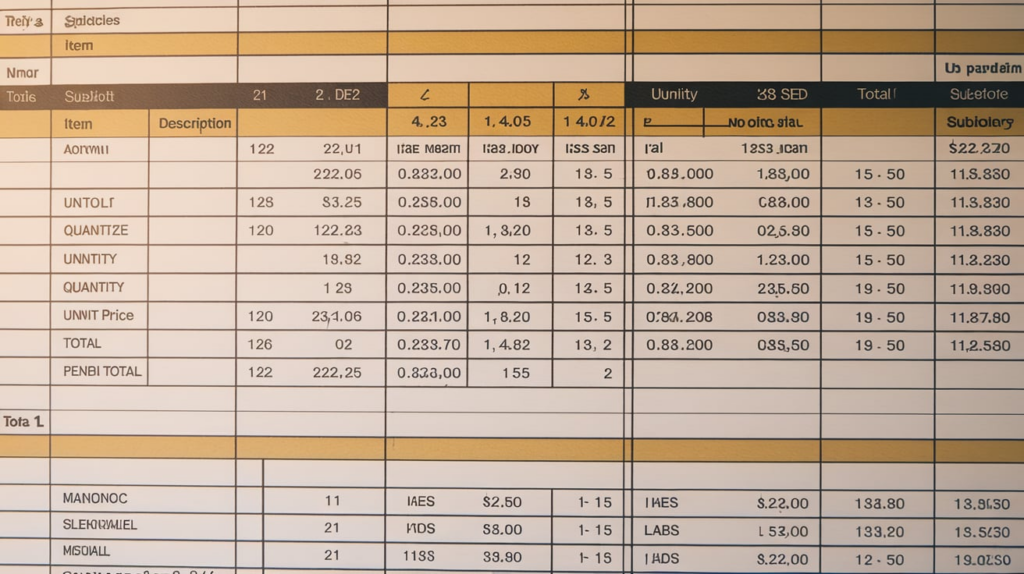Introduction
In today’s complex business world, the rules of accounting have evolved to meet the demands of transparency, accuracy, and compliance. The term “modern rules of accounting” doesn’t refer to a rigid list of guidelines but to a set of evolving principles and practices that are integral to financial reporting today. These modern rules incorporate widely recognized standards such as the Generally Accepted Accounting Principles (GAAP) and International Financial Reporting Standards (IFRS) while adapting to new challenges presented by technology, globalization, and ethical concerns. This article explores these principles, offering a clear, structured view of the contemporary accounting landscape.
The Importance of Modern Accounting Standards
Modern accounting standards are essential for presenting financial information that is fair, transparent, and comparable across borders. This alignment is vital for investors, management, and regulatory bodies, as it builds trust and aids in making informed economic decisions. In essence, the modern rules of accounting ensure that companies report their financial performance in a way that reflects both accuracy and accountability.
Core Standards in Modern Accounting
The key standards that underpin the modern rules of accounting are GAAP and IFRS. Each offers a comprehensive approach to financial reporting, but their scope and application differ based on geographic regions.
Generally Accepted Accounting Principles (GAAP)
- Widely Used in the U.S.: GAAP is the main standard in the United States, designed to guide companies on how to maintain and present financial records.
- Key Elements: GAAP emphasizes the relevance, reliability, comparability, and consistency of financial statements.
- Developed by the Financial Accounting Standards Board (FASB): GAAP is established and updated by FASB, which ensures that the rules align with the current business environment.
International Financial Reporting Standards (IFRS)
- Global Standard: IFRS is widely adopted by countries outside the United States, providing a universal framework for financial reporting.
- Objective: The goal is to harmonize accounting standards worldwide, making it easier for businesses to operate across borders.
- Formulated by the International Accounting Standards Board (IASB): IFRS is designed to improve global financial communication and enhance transparency.

Fundamental Concepts in Modern Accounting
To keep financial records relevant and accurate, modern accounting relies on several fundamental concepts that guide the recording and reporting of financial transactions. Let’s examine some of these principles:
Accrual Accounting
Accrual accounting ensures that financial transactions are recorded when they are incurred, not necessarily when cash changes hands. This method provides a more accurate view of a company’s financial position over time, capturing both revenues and expenses as they occur.
Matching Principle
Under the matching principle, companies align expenses with the revenues they help generate. This rule prevents over- or understatement of income, giving a clear view of operational profitability.
Going Concern Concept
The going concern concept assumes that a company will continue to operate indefinitely unless there is clear evidence to the contrary. This concept is essential as it impacts asset valuation, depreciation, and amortization decisions.
Historical Cost Principle
The historical cost principle mandates recording assets and liabilities at their original purchase prices. By valuing items at their acquisition costs, companies avoid potential market fluctuations and provide a consistent measure of value over time.

Revenue and Expense Recognition Principles
These principles require that revenue is recognized when it is earned and realizable, while expenses are recorded when they contribute to generating revenue. This approach creates an accurate link between costs and revenues, ensuring financial statements are aligned with actual performance.
Modern Accounting Practices: What Has Changed?
The principles of modern accounting are supported by practices that have shifted significantly in response to technological advancements, economic changes, and the increasing importance of data.
Financial Statement Analysis
Analyzing financial statements has become more sophisticated, with accountants now using data analytics and specialized software to assess profitability, risk, and growth. Financial statement analysis helps stakeholders understand a company’s strengths and weaknesses in real-time.
Cost Accounting
Cost accounting focuses on analyzing and controlling costs to enhance efficiency. This approach helps companies minimize expenses, leading to better pricing strategies and improved profit margins.
Managerial Accounting
Unlike financial accounting, which targets external stakeholders, managerial accounting focuses on providing managers with relevant financial data to make informed decisions. This type of accounting is crucial for operational planning, budgeting, and performance evaluation.
Tax Accounting
Compliance with tax regulations has become a priority for modern businesses. Tax accounting ensures that companies follow local and international tax laws, helping them avoid penalties and optimize tax liabilities.
Auditing
Auditing remains an essential component of modern accounting, aimed at verifying the accuracy of financial records and compliance with applicable standards. Independent audits offer credibility, fostering trust among investors and other stakeholders.

The Evolution of Accounting: Technology and Data
Modern accounting is increasingly intertwined with technology, as businesses leverage software and automation to streamline processes. Innovations such as cloud accounting, machine learning, and blockchain are shaping the future of accounting, enabling real-time updates, improved accuracy, and enhanced data security.
Impact of Technology on Accuracy and Efficiency
Automation allows for faster processing of transactions, reducing the time and effort required for tasks like payroll, tax filing, and financial reporting. Advanced software also minimizes errors, helping companies maintain high standards of accuracy.
Data Analytics and Financial Insights
Data analytics offers valuable insights, allowing accountants to go beyond traditional bookkeeping and into strategic analysis. By identifying trends, forecasting outcomes, and evaluating risks, data analytics is transforming accounting from a support function into a strategic advantage.
Conclusion
The modern rules of accounting, shaped by standards like GAAP and IFRS, along with evolving practices, have redefined how companies present and interpret their financial information. Through principles like accrual accounting, matching, and going concern, modern accounting ensures relevance, reliability, and transparency. Meanwhile, practices such as managerial and tax accounting, bolstered by advancements in technology, are making financial information more accessible and actionable. As businesses continue to grow in complexity, accounting will continue to adapt, remaining a cornerstone of ethical and effective financial management.
Whether for large corporations or small businesses, following these modern rules of accounting is essential for sound decision-making, compliance, and sustainable growth. The world of accounting may be ever-evolving, but its role in ensuring fair and transparent financial reporting remains unchanged.
Also Read:Capital Gearing Ratio Formula: Understanding Financial Leverage in Business








One thought on “Modern Rules of Accounting: A Guide to Contemporary Financial Practices”